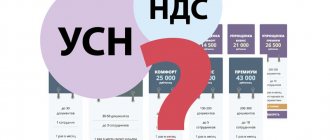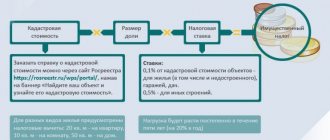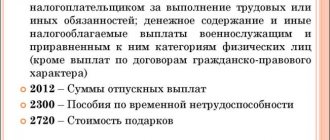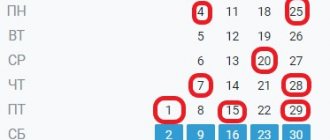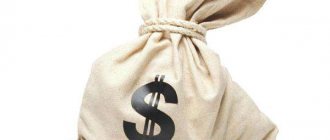Excise taxes and VAT are one of the key concepts both for economists dealing with the peculiarities of taxation and for entrepreneurs trying to survive in conditions of strong market competition in our country. These words frighten many, while others cause a storm of discontent - “Once again the state is taking away the last of their money!” However, it is difficult to argue that taxation in its existing form, having many sharp edges, is still effective - the rates are not as high as in many powers, and the return allows everyone to feel social security at the expense of the state and its “financial cushion”.
Excise taxes: what is it and why?
When talking about excise taxes and VAT, to simplify the situation, it is better to consider each type of surcharge separately. This avoids confusion of concepts. However, we must also remember that these two varieties have a lot in common. Thus, VAT, excise taxes, and income tax are indirect taxation. This term means the following fact: the premium is added to the cost of the goods, which the buyer will have to pay. This is a categorical difference from direct taxes, the payment of which is more “transparent”, obvious and falls on the seller, manufacturer, and employer.
At the same time, excise taxes have a narrow scope of application, which is why they stand out against the background of VAT. They can be applied only to certain groups of products manufactured abroad or in their home country, but cannot be extended to services and works. Typically, excise duty and VAT are calculated individually for each group of excisable goods. This approach ensures the most fair and cost-effective result of the taxation system.
Excise tax: difference from VAT
Although the tax bases for VAT and excise taxes are quite similar in structure, there are some important differences. Excise tax is charged and collected only once during the entire life cycle of the product. Tax accrual occurs at one stage of product promotion, most often the initial stage, that is, at the moment when the product is released by the manufacturer to the first (probably wholesale) buyer.
When a product is resold, no additional contributions are required under the excise tax program, since the funds have already been sent to the budget. The manufacturer includes excise taxes and VAT in the selling price, which means that in the future these values are only an element of the price. At the same time, the one-time deduction of this amount makes excise taxes much more friendly for enterprises and buyers than VAT, which over and over again adds to the price of the product and ultimately falls on the end consumer. How big it will be is determined by the length of the chain of resellers. In many ways, this difference in the accrual logic is the main difference that is important for accounting for VAT and excise taxes, which is maintained by the company’s accounting department.
How do they compare in 2021?
- VAT refers to multi-stage taxes that are levied at different stages of the sale of goods and services. It applies only to part of the value of the goods, and the excise tax applies to its entire value.
- The excise tax is paid to the budget at the initial stage by the manufacturer of the goods 1 time and is no longer levied, but the consumer actually pays it out of his own pocket. The excise tax amount becomes an integral part of the cost of the goods. The one-time payment advantageously distinguishes excise taxes from VAT, as this helps curb inflation processes.
Compared to excise tax, VAT has a wider scope of application. The excise tax is aimed at a rather narrow list of goods and does not apply to the services and work sector. Excise taxation is individual in nature and applies to certain types of excisable goods.
VAT and excise duty have several common properties:
- They influence an increase or decrease in the production of certain goods.
- They are a tool for regulating prices.
- Affect the income and expenses of certain segments of the population.
- They serve as an effective means of replenishing the state budget.
You don't have to look for the answer to your question in this long article! via the form (below), and within an hour a specialized specialist will call you back to provide a free consultation.
Excise taxes: present and future
The specified specificity of the calculation of excise taxes and VAT makes obvious the relationship between the taxation system and inflation. If an increase in the volume of VAT with each transaction on a product only stimulates inflationary growth, then the regularity and one-time nature of excise taxes allows us to minimize the increase in the cost of the product and make the market more stable.
At the same time, excise taxes, VAT, and customs duties cannot be completely eliminated, even if, with an idealistic view of economic sciences, it seems that this is the best way to eliminate inflation. It is these taxes that help fill the state budget and also ensure an influx of funds into the budgets of the country’s constituent entities.
Stability: will it happen?
Every year, analytics are generated that reflect how high the payment of VAT and excise tax was during the reporting period in each individual subject and for the state as a whole. If you look at the data for the last few years, you will notice that the fluctuations in indicators are significant. Consequently, it is difficult to predict the significance of the excise surcharge for the federal and territorial budgets in the future. There are known years when only 3.6% of the total amount came to the country’s budget through excise taxes, and in other reporting periods this figure increased to 15%.
Speaking about the fiscal significance of this element of the taxation system, it is important to note that without taking into account excise taxes and VAT, it is impossible to draw correct conclusions about the importance for the country’s budget of the sale of excisable products against the background of the total volumes of all trade operations in the state. Correct tax accounting allows you to identify the percentage of excise taxes from other tax deductions directed to the consolidated state budget. This value depends on the established excise taxes and preferential programs, inflation and the characteristics of the objects on which taxes are charged. Correct use of information obtained from such analytics makes it possible to adjust the calculation of VAT, excise taxes, income tax, and personal income tax in such a way that, with sufficiently large contributions to the budget, enterprises can operate profitably.
Sales (transfer) of excisable goods
The reflection of the amount of excise tax upon the sale (transfer) of excisable goods depends on whether the taxpayer will accept the accrued amount of excise duty as a deduction or not.
In what cases should a taxpayer assess excise tax when selling (transferring) excisable goods, see How to calculate excise tax when selling excisable goods.
The amount of excise tax presented to the buyer (recipient) should be taken into account in correspondence with the account on which the proceeds from the sale of excisable goods are reflected:
Debit 90-4 (91-2) Credit 68 subaccount “Calculations for excise taxes”
– excise tax is charged on the sale of goods.
If the seller does not charge the buyer the amount of excise duty, in accounting, reflect the specified amount of tax on account 19 “Value Added Tax” subaccount “Excise Taxes”:
Debit 19 sub-account “Excise taxes” Credit 68 sub-account “Calculations for excise taxes”
– excise tax is charged on the sale of goods.
Situation: can the seller take into account the amounts of excise tax charged to the buyer when calculating income tax?
No, he can not.
From the literal interpretation of the norms of the Tax Code of the Russian Federation, it follows that the tax base for income tax must be reduced twice by the amounts of excise tax presented to the buyer:
- exclude from income (clause 1 of article 248 of the Tax Code of the Russian Federation);
- include in the cost of sold excisable goods (clause 1 of Article 199 of the Tax Code of the Russian Federation).
However, with this approach, the tax base for income tax will inevitably be underestimated by the amount of the excise tax. Therefore, the Russian Ministry of Finance issued clarifications according to which excise tax amounts charged to the buyer do not need to be taken into account either as income or as expenses (letters dated March 9, 2011 No. 03-07-06/59, dated October 23, 2008 No. 03-03-06/1/599). According to representatives of the financial department, the clarifications made to paragraph 1 of Article 199 of the Tax Code of the Russian Federation do not change this procedure.
An example of how excise tax accrued on sales of products is reflected in accounting. Excise tax is presented to the buyer
Alpha LLC produces beer. In May, the organization sold 500 bottles of beer (with an alcohol content of 0.5 to 8.6 percent by volume). Of the total number of beer bottles sold, 400 bottles were 0.5 liters and 100 bottles were 0.33 liters. The contractual cost of goods sold is 23,600 rubles. (including VAT - 3600 rubles, excise tax - 4660 rubles). The excise tax rate for beer with an alcohol content by volume from 0.5 to 8.6 percent is set at 20 rubles. for 1 liter.
Alpha's accountant made the following entries in the accounting.
In May:
Debit 62 Credit 90-1 – 23,600 rubles. – revenue from beer sales is reflected;
Debit 90-3 Credit 68 subaccount “Calculations for VAT” – 3600 rubles. – VAT is charged on sales proceeds;
Debit 90-4 subaccount “Excise taxes” Credit 68 subaccount “Calculations for excise duties” - 4660 rubles. ((400 bottles × 0.5 l + 100 bottles × 0.33 l) × 20 rubles) – excise tax is charged on the sale of beer.
An example of how excise tax accrued on sales of products is reflected in accounting. Excise tax is deducted by the seller
Alpha LLC, which has a certificate for the production of straight-run gasoline, sold 40 tons of straight-run gasoline to the oil refinery in February. The buyer has a certificate for processing straight-run gasoline. The plant used the resulting goods as raw materials for the production of petrochemical products in May. The contractual cost of gasoline sold is RUB 826,000. (including VAT – 126,000 rubles). Omega handed over the register of invoices with a tax authority mark for this transaction to the seller in May. The excise tax rate per 1 ton of straight-run gasoline is 10,500 rubles.
Alpha's accountant made the following entries in the accounts.
In February:
Debit 62 Credit 90-1 – 826,000 rub. – revenue from the sale of straight-run gasoline is reflected;
Debit 90-3 Credit 68 subaccount “Calculations for VAT” – 126,000 rubles. – VAT is charged on sales proceeds;
Debit 19 sub-account “Excise taxes” Credit 68 sub-account “Calculations for excise taxes” - 420,000 rubles. (40 t × 10,500 rubles) - excise tax is charged on the sale of straight-run gasoline.
In May:
Debit 68 subaccount “Calculations for excise taxes” Credit 19 subaccount “Excise taxes” - 420,000 rubles. – excise tax accrued on the sale of straight-run gasoline has been accepted for deduction.
The accrual of excise duty on the gratuitous transfer of excisable goods should be reflected as part of other expenses by posting:
Debit 91-2 Credit 68 subaccount “Calculations for excise taxes”
– excise tax is charged on the gratuitous transfer of excisable goods.
If these expenses are not taken into account for income tax purposes, permanent tax liabilities arise (clause 7 of PBU 18/02), which must be reflected in the organization’s accounting with the following entry:
Debit 99 Credit 68 subaccount “Calculations for income tax”
– a permanent tax liability is reflected.
When selling excisable products in Russia, accrue excise tax on the day the goods are shipped to the buyer. This follows from the provisions of subparagraph 1 of paragraph 1 of Article 182, paragraph 2 of Article 195 of the Tax Code of the Russian Federation.
Situation: how to reflect in accounting the amount of excise duty charged to the buyer when selling goods if the ownership of these goods has not transferred to the buyer?
Develop the procedure for excise tax accounting in such a situation yourself.
When determining the tax base for the sale of excisable goods, the moment of transfer of ownership to the buyer does not matter. If the contract provides for a special procedure for the transfer of ownership (for example, after payment), and shipment precedes payment, then accrue excise tax at the time of shipment.
Chapter 22 of the Tax Code of the Russian Federation does not regulate the procedure for determining the moment of shipment for the purpose of calculating excise duty. For the purposes of calculating VAT, the Federal Tax Service of Russia recommends recognizing the day of shipment as the date of the first drawing up of the primary document, which is issued to the buyer (letter of the Federal Tax Service of Russia dated February 28, 2006 No. MM-6-03/202). Such a document can be, for example, a consignment note in form No. TORG-12. The same procedure can be applied to determine the date of shipment for the purpose of calculating excise duty.
The procedure for reflecting in accounting the amounts of excise duty charged to the buyer on excisable goods, the ownership of which has not been transferred to him, is not regulated by law. In this regard, the organization can independently develop such a procedure (paragraph 9 of the Instructions for the chart of accounts). Since it is impossible to reflect the accrual of excise tax on account 90 “Sales” in this case (subparagraph “d” of paragraph 12 of PBU 9/99), use account 76 “Settlements with various debtors and creditors” for this. You can open separate subaccounts for it, for example:
- subaccount “Excise duties on goods, the ownership of which is transferred to the buyer in a special manner”;
- subaccount “Excise duties on products, the ownership of which is transferred to the buyer in a special manner.”
Then, when shipping excisable goods, make the following entry:
Debit 76 subaccount “Excise tax on goods (products), the ownership of which is transferred to the buyer in a special manner” Credit 68 subaccount “Calculations for excise duties”
– excise duty is charged on goods (products), the ownership of which is transferred to the buyer in a special manner.
After the buyer pays for the goods and the ownership of them is transferred to him, write off the accrued amount of excise tax to the debit of account 90-4 (91-2):
Debit 90-4 (91-2) Credit 76 subaccount “Excise duty on goods, the ownership of which is transferred to the buyer in a special manner”
– reflects the excise tax on sales proceeds.
An example of reflecting in accounting the amount of excise tax accrued upon the sale of products under an agreement with a special procedure for the transfer of ownership
Proizvodstvennaya » On May 20, Alpha LLC sold 10,000 liters of beer with a standard ethyl alcohol content of 7 percent by volume. Selling price – 460,200 rubles. (including VAT - 70,200 rubles, excise tax - 200,000 rubles). Product cost – 200,000 rubles. According to the agreement, ownership of the products passes to Alpha at the time of payment. Alpha paid for the shipped products on June 6. The excise tax rate for beer with an alcohol content by volume from 0.5 to 8.6 percent is set at 20 rubles. for 1 liter.
The order on the accounting policy of “Master” provides for the following subaccounts to account 45:
- subaccount “Excise duties on goods, the ownership of which is transferred to the buyer in a special manner”;
- subaccount “VAT on products, the ownership of which is transferred to the buyer in a special manner.”
The Master's accountant made the following entries in the accounts.
May 20:
Debit 45 Credit 43 – 200,000 rub. – reflects the cost of finished products shipped to the buyer;
Debit 45 subaccount “VAT on products, the ownership of which is transferred to the buyer in a special manner” Credit 68 subaccount “VAT calculations” - 70,200 rubles. (RUB 460,200: 118 × 18) – VAT is charged on the cost of shipped products;
Debit 45 subaccount “Excise duty on goods, the ownership of which is transferred to the buyer in a special manner” Credit 68 subaccount “Calculations for excise taxes” - 200,000 rubles. (10,000 l × 20 rubles) - excise tax is charged on the cost of shipped products.
June 6:
Debit 51 Credit 62 – 460,200 rub. – payment received from the buyer;
Debit 62 Credit 90-1 – 460,200 rub. – revenue from sales is reflected;
Debit 90-2 Credit 45 – 200,000 rub. – the cost of shipped products is written off;
Debit 90-3 Credit 45 “VAT on products, the ownership of which is transferred to the buyer in a special manner” - 70,200 rubles. – VAT is reflected on proceeds from beer sales;
Debit 90-4 Credit 45 subaccount “Excise duty on goods, the ownership of which is transferred to the buyer in a special manner” - 200,000 rubles. – reflects the excise tax on proceeds from the sale of beer.
Analytics and relationships
So, the price of any product includes VAT and excise taxes, which also show the potential of the taxation system. In addition, one can draw conclusions about the need to expand or reduce the range of goods on which it is necessary to introduce (or eliminate) excise taxes.
Currently excisable goods:
- ethanol;
- products in which ethyl alcohol is present in a concentration of 9% or more;
- alcoholic goods;
- beer;
- products containing tobacco;
- personal cars;
- motorcycles with an engine power of 150 horsepower or more;
- gasoline for cars;
- diesel;
- motor oils;
- straight-run fuel.
For all these categories of goods, excise taxes and VAT are sufficiently significant to guarantee the budget annual receipts of a fairly large amount of funds.
Indirect taxes: excise taxes and VAT. Principles and elements of taxation. VAT accounting.
Indirect taxes are taxes levied as an addition to the price of a product.
Excise tax is a type of tax that is included in the price of goods and paid at the expense of the buyer. Valid for certain goods – “excise” goods of the Tax Code of the Russian Federation, Article 181 (alcohol, tobacco products, cars, motorcycles, gasoline, diesel fuel, etc.).
An object:
— sales of produced excisable goods on the territory of the Russian Federation;
— import of excisable goods into the customs territory of the Russian Federation;
— receipt (acquisition of ownership) of excisable goods.
Subject : Organizations, individual entrepreneurs, persons recognized as VAT taxpayers in connection with the movement of goods across the customs border of the Russian Federation.
Tax base - determined for each type of excisable goods, depending on the type of tax rates:
- as the volume of goods in physical terms - at fixed rates;
- as the cost of sales - at ad valorem rates;
- as volume and as calculated cost - with combined rates.
Tax period : month.
Tax rate : rates are established for each excisable product in accordance with Article 193 of the Tax Code of the Russian Federation.
Calculation procedure, payment terms:
— at fixed rates
: excise tax amount = tax base in kind * excise tax rate in rubles;
— at ad valorem rates
: excise tax amount = tax base in value terms * rate in percent / 100%;
— for combined bets
the amount of excise taxes is calculated at fixed and ad valorem rates and compared with the minimum established rate for the product. Take a large value!
In general, excise taxes are paid by the 25th of the following month. For some goods, deadlines are set in accordance with Articles 204-205 of the Tax Code of the Russian Federation.
The following excise tax amounts are subject to tax deduction:
- presented by sellers and paid by the taxpayer when purchasing excisable goods;
— paid by taxpayers upon import into the territory of the Russian Federation;
— paid by the owner of customer-supplied raw materials upon its acquisition, production or import.
VAT is part of the cost of goods or services provided, withdrawn to the state budget.
Object : - sale of goods, works, services on the territory of the Russian Federation;
- transfer of goods, works, services for one’s own needs, expenses for which are not deductible when calculating income tax;
— carrying out construction and installation work for own consumption;
— import of goods into the customs territory of the Russian Federation.
Subject : Organizations, individual entrepreneurs, persons recognized as VAT taxpayers in connection with the movement of goods across the customs border of the Russian Federation.
Tax base – the cost of goods sold, work performed, services rendered, taking into account excise taxes, for excisable goods;
When importing goods into the customs territory of the Russian Federation:
Tax base = customs value + excise tax + customs duty
Tax period : quarter.
Tax rate:
· 0% is a special rate applied mainly to export goods and services;
· 10% - reduced rate for the sale of socially important food products, certain goods for children and medical purposes, scientific and educational publications;
· 18% is the base rate applicable to all other transactions.
Calculation procedure, payment terms:
The amount of VAT payable is equal to: Tax base*rate – the amount of tax deductions.
VAT is paid based on the results of each tax period in equal installments, no later than the 25th day of each of the 3 months following the expired tax period. (i.e., for example, for the 1st quarter we will pay in April, May and June before the 25th of each month, in equal parts; and if we need to pay 30 thousand rubles for the 1st quarter, then 10 thousand each month. )
The following tax amounts are subject to tax deductions :
— presented by the supplier of goods, works, services;
- paid by buyers - tax agents;
— paid by the taxpayer upon import of goods, if subsequent transactions with these goods are subject to VAT;
— paid to the budget when selling goods, in case of return of these goods.
Reflection on accounting accounts of operations for the calculation and transfer of VAT:
Amounts of property tax for organizations are reflected in account 68 “Calculations for taxes and fees”, to which you need to open a sub-account “Calculations for VAT”.
Tax accrual is reflected in the credit of account 68, payment - in the debit.
D 90 K 68 – VAT is charged on the sale of goods (work, services) in the main type of activity;
D 91 K 68 – VAT is charged on the sale of goods (work, services) for additional types of activities;
D 19 K 60.76 – VAT on purchased GWS is taken into account;
D 41,10,08 K 19 – VAT is included in the price of these goods (materials, etc.)
D 68 K 19 – VAT on purchased goods and equipment is accepted for deduction.
It was - it became
It is known that previously cigarettes and raw ethyl alcohol were not included in the number of excisable goods. Amendments in this regard to the law were made not so long ago. Revenue, VAT, and excise taxes on these product categories have become similar to other alcohol, automobile, and tobacco-containing products. By the way, motorcycles were also included in the list of excisable goods not so long ago.
However, not everything is so simple. Analytics assessing revenue, VAT and excise taxes have allowed economists to promote the idea of excluding certain categories of goods from the list of excisable goods. So, jewelry and some categories of fuel made from gas and oil were brought from here. These changes caused some dissatisfaction on the part of local officials, as they reduced budget revenues. If we talk about quantitative expression, the exclusion of these items from the number of excisable items in St. Petersburg alone reduced tax revenues by 7.5%. For the entire country, the figure fell by an average of 2.5%.
These losses were partially compensated by including household chemicals, perfumes, and products containing alcohol in the excise list. The rules apply to products supplied to the market in metal packaging equipped with an aerosol.
The service center performs an oil change. Do I need to pay VAT and excise taxes?
NK Your Tax Representative LLC answers readers’ questions. Telephones in Yekaterinburg: 213-59-34, 378-33-29, 213-59-35
The company provides car service services (car repair, maintenance, warranty service). The taxation system since 2003 is the simplified tax system, the object of taxation is income. Since 2004, the company has been transferred to UTII. To maintain the warranty on the car, the owner must undergo maintenance at warranty service stations. The maintenance includes changing the engine oil. To improve the quality and speed of customer service, our company purchases motor and transmission oils in small quantities (2-3 cans per month) for cash. Then the oils are credited to account 10 “Materials” and, if necessary, are used during the technical inspection at the request of the client. Oils are written off as expenses at the input price, since the company does not make markups.
Should our company pay excise taxes or VAT in this case? Our tax office believes that in this case we are selling fuel and lubricants, since the moment of transfer of ownership can be traced.
In accordance with paragraphs 3 p. 2 art. 346.26 Tax Code of the Russian Federation
a single tax on imputed income applies, inter alia, to repair, maintenance and washing services of vehicles.
According to the All-Russian Classifier of Services to the Population (OK 002-93)
Machine maintenance also includes lubrication and refueling work (code 017105).
Therefore, changing engine oil is considered a vehicle maintenance activity.
, which falls under UTII.
Since these services are included in the range of services performed by the taxpayer as part of his activities related to the repair and maintenance of vehicles, they are an integral part of the technological process
provided for by this type of business activity.
Since fuels and lubricants are accounted for in accounting account 10 “Materials” and are written off at the input price, they are accordingly used as part of the technological process, and such an operation cannot be called a sale of goods.
The opinion of the tax inspectorate that an oil change can be considered a sale of fuel and lubricants since the moment of transfer of ownership is traced is controversial.
As noted above, the organization does not sell motor oil as a product
(accounting entries also speak in favor of this), but
sells a service
in which the replacement of fuel and lubricants is included as an integral part.
When providing any service, a paid service agreement
.
In accordance with Art. 783 Civil Code of the Russian Federation
service contracts are subject to
general provisions on contracting and provisions on household contracting
, unless this contradicts the provisions of the Civil Code of the Russian Federation.
According to Art. 733 Civil Code of the Russian Federation
when performing work under a household contract using the contractor's materials,
the customer must compensate the contractor's costs for materials
.
In accordance with paragraph 2 of Art. 709 Civil Code of the Russian Federation
such compensation is
an integral part of the price of work
performed under the contract.
Thus, the cost of fuels and lubricants used in the provision of vehicle maintenance services is included in the calculations under the contract for the provision of paid services
.
But such calculations are not the sale of fuel and lubricants and, accordingly, are not subject to excise taxes, since in accordance with Art. 182 Tax Code of the Russian Federation
The object of excise taxation is precisely
the sale
of excisable goods (in this case, fuels and lubricants).
In accordance with paragraph 4 of Art. 346.26 Tax Code of the Russian Federation
Business entities are not recognized as VAT payers in relation to activities falling under UTII.
Based on the above, an enterprise that provides car repair and maintenance services and changes engine oil in accordance with the technological process will not be a payer of VAT or excise taxes.
But it is necessary to pay attention to the fact that if fuels and lubricants are accounted for in accounting account 41 “Goods”
and is sold with a trade margin, then this operation will be an independent type of entrepreneurial activity, and in accordance with
Art.
346.27 of the Tax Code of the Russian Federation, the sale of excisable goods is not subject to the taxation system in the form of UTII.
A similar conclusion is contained in the letter of the Ministry of Taxes and Taxes of the Russian Federation dated June 11, 2003 No. SA-6-22/657
(as amended by the letter of the Ministry of Taxes and Taxes of the Russian Federation dated June 21, 2004 No. 22-0-10/ [email protected] ).
Director of LLC “NK Your Tax Representative”
D.V. Merkushev
© LLC “NK Your Tax Representative”
Avoided the attention of tax authorities
Some types of products are not subject to excise taxes, despite the presence of alcohol among the components. However, excise taxes are not levied only if certain conditions are met. For example, drugs produced on an alcohol basis find themselves in such a special situation.
An individual approach from tax laws is also applied to veterinary products that contain alcohol. Also, cosmetic and perfumery products are mostly not subject to excise taxes. All of the listed categories avoid excise taxation only if the manufacturer has taken care of state registration of the product. In addition, there are requirements for packaging: containers must meet standards accepted at the state level.
Whose wallet is suffering?
Who must pay excise tax? By law, this responsibility falls on enterprises and entrepreneurs producing goods or transporting them across the Russian state border. But separate divisions and other similar structural units do not have to pay taxes on their own; they only take on the responsibility of transferring money from the head office to the local tax office.
If a certain entrepreneur or enterprise has been included in the list of excise tax payers, they must first analyze their business activities. Does it contain an object on which excise taxes are charged? If there is one, tax will have to be paid. If there are no products on the excise list, you do not need to pay anything until a product justifying the deduction appears.
Tax Code and the object of taxation
From the main collection of tax laws in Russia it follows that the object of excise taxation is such transactions in which goods that are legally subject to excise taxes take part.
In economic sciences, these business transactions are usually divided into groups to simplify the preparation of analytics. Existing division:
- operations with oil and its products;
- transactions with other goods subject to excise taxes.
This division is based on the introduction of a specialized procedure for calculating taxes on oil and products made from it.
General concepts of the tax system
Today, it is impossible to imagine economic relations without such a market lever as the tax system.
The tax system acts as one of the main mechanisms of state regulation of the economy. Indirect taxes occupy a special place in taxation. Indirect taxes include:
- value added tax;
- excise duty;
- customs duty;
- export-import duties.
Definition 1
Tax is a mandatory payment that is paid by business entities. The amount that is paid is credited to the state budget fund.
Operations: what will you have to account for?
Excise taxes will have to be paid when carrying out a number of transactions with goods included in the state list (the main categories included in it are listed above). These operations primarily include implementation. Transactions concluded on the territory of Russia are considered, with one of the parties being a manufacturer of excisable products. The law interprets the concept of “sale” not only as a sale, but also as a transaction on a gratuitous basis, as well as the transfer of a product, in response to which the manufacturer receives compensation and innovation. Payment in kind can be used as “payment” for sales.
Taxes will also be imposed on transactions carried out within the state borders of Russia with goods subject to excise taxation, if they were made from raw materials supplied by customers and then transferred to the person who provided these raw materials. If the manufacturer retains a percentage of the products produced as compensation for manufacturing services, the transaction is also subject to excise tax.
Processing of customer-supplied raw materials
In the process of executing contracts for the processing of customer-supplied raw materials, an object of excise tax may arise for both the owner of the customer-supplied raw materials and the processor.
The cost of materials transferred for processing on a toll basis is reflected on account 10-7 “Materials transferred for processing to third parties”:
Debit 10-7 Credit 10 (43)
– reflects the cost of materials (products) transferred for processing on a toll basis.
The accrual of excise duty when transferring produced excisable goods for processing on a toll basis is reflected by posting:
Debit 19 sub-account “Excise taxes” Credit 68 sub-account “Calculations for excise taxes”
– excise tax is charged upon transfer of excisable goods for processing on a toll basis.
Receive receipt of products made from raw materials from the processor of raw materials using the following entries:
Debit 20 (10) Credit 10-7
– materials from processing are returned and included in the cost of finished products (materials);
Debit 20 (10) Credit 60
– the cost of processing work is taken into account in the cost of finished products (materials).
If non-excise goods are obtained as a result of processing, then the amount of excise tax paid to the budget on customer-supplied raw materials is attributed to the cost of the products obtained as a result of processing (clause 1 of Article 199 of the Tax Code of the Russian Federation).
In accounting, reflect this operation as follows:
Debit 20 (10) Credit 19 subaccount “Excise taxes”
– the amount of excise tax accrued upon transfer for processing is taken into account in the cost of finished products (materials, fixed assets).
If, as a result of processing customer-supplied raw materials, excisable goods are produced, reflect the amount of excise tax presented by the processor in accounting by posting:
Debit 19 subaccount “Excise taxes” Credit 60
– reflects the excise tax imposed by the processor upon transfer of excisable products made from customer-supplied raw materials.
If an excisable product produced from customer-supplied raw materials is subsequently used by the organization to produce another excisable product, deduct the amount of excise tax paid to the processor and the amount of excise tax paid to the budget when transferring the customer-supplied raw materials. Make the following entries in your accounting:
Debit 20 (23) Credit 10 (43)
– excisable goods are released into the production of other excisable goods;
Debit 68 sub-account “Calculations for excise taxes” Credit 19 sub-account “Excise taxes”
– the excise tax presented by the processor of customer-supplied raw materials has been accepted for deduction;
Debit 68 sub-account “Calculations for excise taxes” Credit 19 sub-account “Excise taxes”
– excise tax paid to the budget upon transfer of customer-supplied raw materials for processing has been accepted for deduction (if the customer-supplied raw materials were excisable goods).
In the accounting of the executing organization, reflect the receipt and processing of customer-supplied materials with the following entries:
Debit 003
– materials received for processing (in the assessment provided for in the contract);
Debit 20 Credit 02 (10, 23, 25, 26, 60, 68, 69, 70, 76…)
– the costs of the performing organization for processing materials are taken into account;
Debit 90-2 Credit 20
– the cost of materials processing work has been determined;
Debit 90-3 Credit 68 subaccount “VAT calculations”
– VAT is charged on the cost of work on processing materials (if the organization is a VAT payer);
Debit 62 Credit 90-1
– accepted by the customer for processing materials;
Credit 003
– processed materials were transferred to the customer.
If excisable goods are obtained as a result of processing, then when transferring them, charge excise tax (subclause 7, clause 1, article 182 of the Tax Code of the Russian Federation) and present it to the recipient of the goods (clause 1, article 198 of the Tax Code of the Russian Federation). Reflect the amount of accrued tax by posting:
Debit 90-4 Credit 68 subaccount “Calculations for excise duties”
– excise tax is charged on excisable products produced from them transferred to the owner of the raw material.
And what else?
Tax will have to be paid if the organization transfers manufactured products, officially presenting them as raw materials for the subsequent production of goods not subject to excise duty. You will also have to pay a contribution to the budget in the case where the excisable product was manufactured by the company and transferred to the consumer without paying the cost, but under the contract the consumer is obliged to pay for processing.
If goods are transferred for own needs and internal use, the products are also subject to excise taxes, as well as the transfer of goods as contributions to the authorized capital of a third legal entity.
VAT: let's take a closer look
This type of tax is also indirect and is included in the price of the goods paid by the buyer. Payers for this category of tax deductions are enterprises, entrepreneurs, as well as those who transport goods across the Russian state border.
VAT can be charged only when goods are transferred (services are provided, work is performed) within the state borders of Russia, and the buyer is active in the country. In order for the procedure to be legal and correct, it is accompanied by documentation confirming exactly where the goods were sold, services were provided, and work was performed. Such official confirmation is provided by concluded contracts, checks and other documents, from which it follows that the services have been provided and the work has been completed.
Accounting for excise taxes when calculating value added tax
Who doesn't pay
Manufacturers and sellers of excisable goods are not included in the list of persons exempt from VAT. Enterprises and individual entrepreneurs have the right not to pay VAT in the following cases:
- if they pay taxes according to a simplified scheme (unified agricultural tax or UTII);
- if the revenue from the sale of goods for the last 3 months is less than 2 million rubles.
This does not apply to enterprises selling excisable goods. If there is an exemption from VAT, it may be lost early if during the last three calendar months the enterprise or individual entrepreneur was engaged in the sale of excisable products or mineral raw materials.
Excise taxes are imposed on both domestically produced goods sold in the country and imported goods: alcohol-containing goods, tobacco, beer, jewelry, petroleum products, gas, cars (except for manual cars), and some types of raw materials.
Accounting for VAT-taxable and non-taxable (excise duty) fuel transactions - the topic of the video below:
Objects
The object of taxation for calculating VAT for such goods is the total amount of several components:
- excise duty;
- customs value;
- import customs duty.
When calculating and paying VAT, excise taxes and duties should not be included in the tax base if the product or manufacturer is exempt from paying such taxes.
VAT: basic concepts
The Tax Code talks about what the tax base for calculating VAT is in article number 40. It follows from it that to calculate taxes, they take the cost of a product, service or work, subtracting the amount of excise taxes from it. The value is taken as the value that both parties to the transaction indicate in the documents accompanying the transaction.
If it is necessary to sell a product whose price already includes VAT, then to calculate the tax base, the market price of the product is identified and the residual value is subtracted from it, revaluing the positions in the process of accounting calculations.
